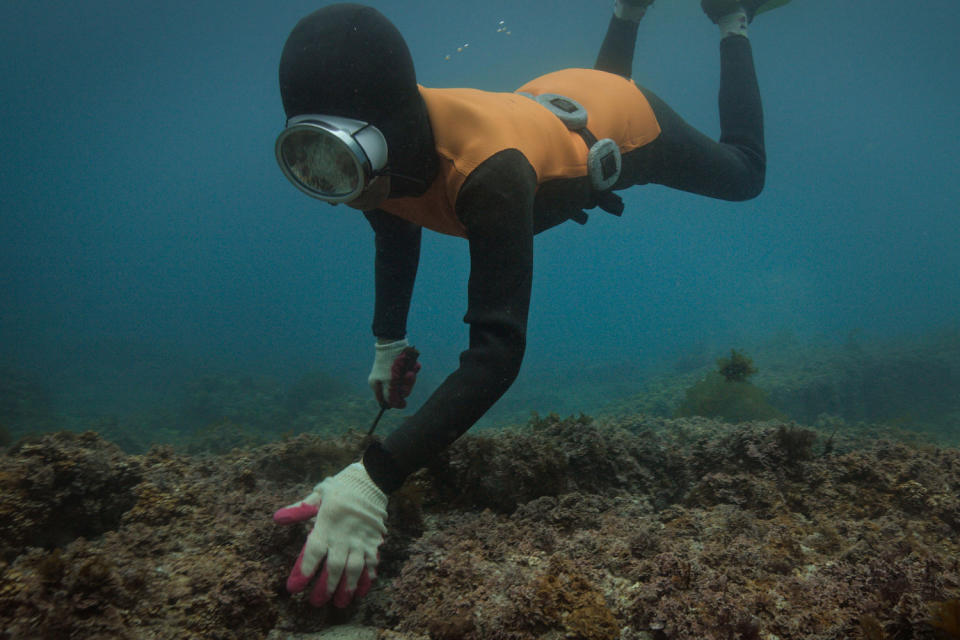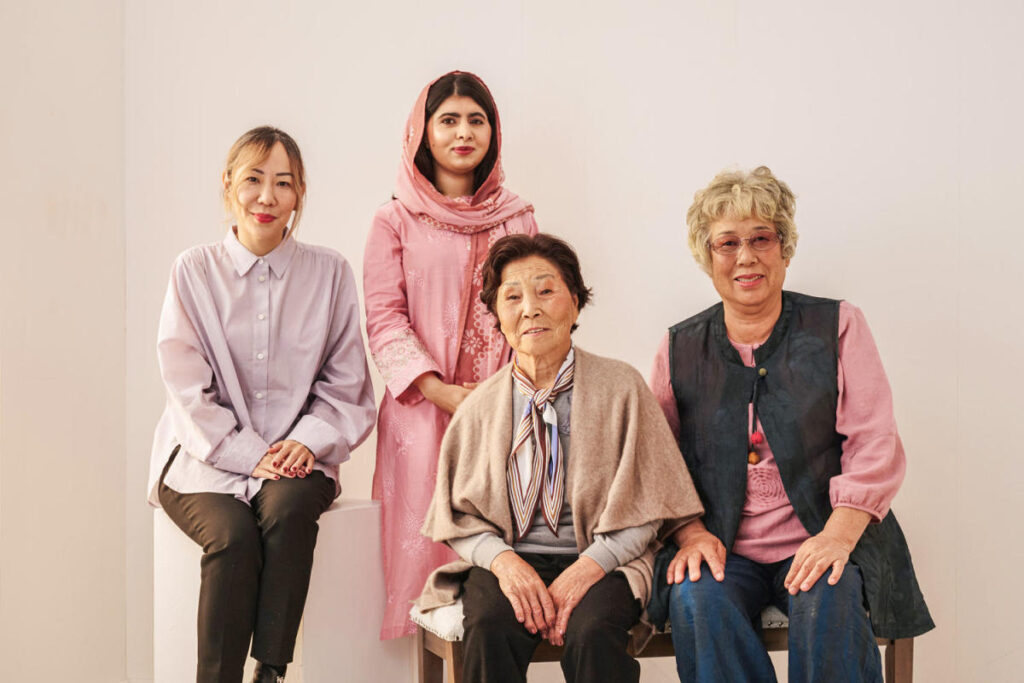South Korea’s “haenyeo,” or female divers, say they have become inseparable from their deep blue surroundings.
In Nobel Prize winner Malala Yousafzai’s first executive-produced film, she explores the world of divers, most of whom are now in their 60s, 70s and 80s and live on Jeju Island, about 80 miles off the Korean Peninsula.
The women maintain a centuries-old tradition, including maintaining a kind of sisterhood, and also speak out against issues such as climate change and nuclear waste.
The documentary “The Last of the Sea Women,” out Friday on Apple TV+, explores the lives of a group of these “real mermaids,” as the haenyeo are known, as they strive to protect their livelihoods and ancestral crafts from a range of external forces.
The divers harvest abalone, sea urchins and more by venturing into dark waters without the aid of oxygen tanks or professional diving equipment, instead using tools such as nets and hoes. In the 1960s the haenyeo numbered 30,000. Despite being included in the UNESCO Intangible Cultural Heritage List, they float around today 3,200 today.


The women argue and bicker almost as much as they joke together. But Yousafzai says it is their very human, unconditional support for each other that is crucial to their survival.
“In my own story of activism, I am sometimes seen as a girl taking up the fight, but I know that is not a true reflection of what actually creates real change,” Yousafzai said. “When I look at the story of the haenyeo, I see that very clearly – how they are able to actually maintain and sustain their community through that togetherness and that friendship and sisterhood.”
While many women have joined the dangerous diving industry out of necessity – to support their families after tragedy or financial insecurity – the haenyeo are also speaking out against a range of issues, such as pollution from tourists, warming waters due to climate change, declining interest in their craft and the release of nuclear waste from the Fukushima plant in their area.
The women say they are resisting these threats by protesting at rallies or honoring their art through cultural traditions. One haenyeo, Jang Soon Duk, even regularly travels to Switzerland to speak before the UN Human Rights Council and advocate for the protection of their waters amid the threatened release of nuclear waste. Since then, Japan has begun the process of containing the waste, which is estimated to take nearly three decades.


“The ocean is our home. We have to go to the sea,” Geum Ok, a haenyeo, says in the film. “Even in my next life I will dive again.”
Throughout the film, scenes are peppered with laughter and jokes about everything from planning to more existential issues. Director Sue Kim said she also wanted to show them being their authentic selves, including a healthy dose of “love language.”
“It’s a fight. The fighting between the haenyos was going on all the time,” Kim said with a laugh. “That just means they’re so close.” … They talk about it, they shout about it, but as you saw in the film, they solve it immediately. They know how to forgive each other.”
Kim added that the women don’t hold grudges simply because they can’t afford to let emotions divide them.
“Their survival depends on their dependence and interdependence on each other,” she said.
Jang and Lee Hee Soon, another haenyeo in the documentary, explained that their strength comes in part from the role the women play in their families.
“I believe we can do this because women are mothers,” Jang said through a translator in Korean. “We are mothers and mothers are strong.”
Jang also said that she, like many other haenyeo, felt it was crucial to “be the one who led the family and also kept the family safe.” As families leaned on them, it became “just our culture” to carry on regardless of the circumstances.
Yousafzai said the story of the haenyeos reflects a long history of women trying to “establish their own definitions of what freedom and dignity mean to them.”
“Women simply have no choice. They don’t even have time to think about how they want to define that life for themselves. It’s just a constant struggle to live in a more equal, safer world,” Yousafzai said.
This article was originally published on NBCNews.com







